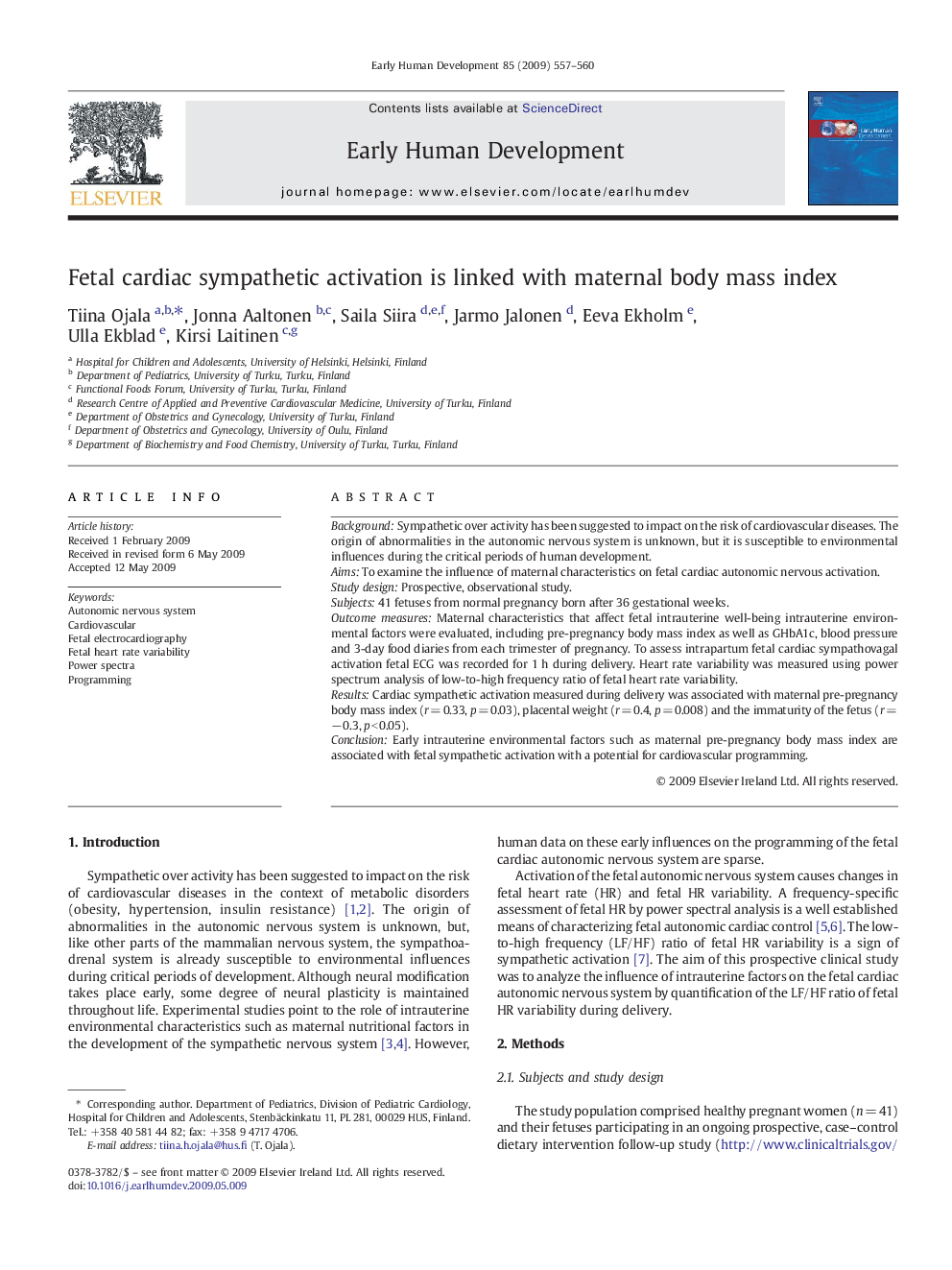| Article ID | Journal | Published Year | Pages | File Type |
|---|---|---|---|---|
| 3918537 | Early Human Development | 2009 | 4 Pages |
BackgroundSympathetic over activity has been suggested to impact on the risk of cardiovascular diseases. The origin of abnormalities in the autonomic nervous system is unknown, but it is susceptible to environmental influences during the critical periods of human development.AimsTo examine the influence of maternal characteristics on fetal cardiac autonomic nervous activation.Study designProspective, observational study.Subjects41 fetuses from normal pregnancy born after 36 gestational weeks.Outcome measuresMaternal characteristics that affect fetal intrauterine well-being intrauterine environmental factors were evaluated, including pre-pregnancy body mass index as well as GHbA1c, blood pressure and 3-day food diaries from each trimester of pregnancy. To assess intrapartum fetal cardiac sympathovagal activation fetal ECG was recorded for 1 h during delivery. Heart rate variability was measured using power spectrum analysis of low-to-high frequency ratio of fetal heart rate variability.ResultsCardiac sympathetic activation measured during delivery was associated with maternal pre-pregnancy body mass index (r = 0.33, p = 0.03), placental weight (r = 0.4, p = 0.008) and the immaturity of the fetus (r = − 0.3, p < 0.05).ConclusionEarly intrauterine environmental factors such as maternal pre-pregnancy body mass index are associated with fetal sympathetic activation with a potential for cardiovascular programming.
